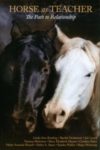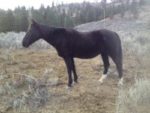COLIC- The 2 differrent types
COLIC
By Marikje van de Water, B.Sc., DHMS.
Colic is the number one cause of death in horses. The majority of colic cases are caused by either a build up of gas or by impactions in the hindgut.
Affected horses exhibit symptoms that include pawing, sweating, passing small amounts of stool, looking at, or kicking at their abdomen and wanting to lie down or roll.
GAS COLIC
With gas colic (flatulent colic), unusually large quantities of gas accumulate in the hind gut, causing mild to severe abdominal pain. Similar to the process of gastritis, excessive intestinal gas is produced by excessive fermentation.
Any undigested starches must be fermented in the cecum, resulting in large volumes of gas. The gas is produced at a faster rate than can be released thus causing painful mechanical pressure and cramping.
IMPACTION COLIC
Impaction colic’s are blockages that obstruct the colon. These obstructions are caused by mal-digested feed, excess fecal material, sand accumulations, worms and or water deprivation.
Mal-digestion is the most common cause of impaction colic, with masses of undigested food trapped in the intestine. This is why it is so important to support effective equine digestion through good diet and horse keeping practices.
Horses don’t always show symptoms of colic with digestive distress; they may express feeling of digestive discomfort or unwellness through appetite changes “cinchyness”, depression or mental irritability.
They also might display sudden abnormal behaviour such as kicking and biting. Again, the equine observer must often be very astute to indentify digestive discomfort as the underlying cause for irritability, poor performance, unusual behaviours and even training problems.


